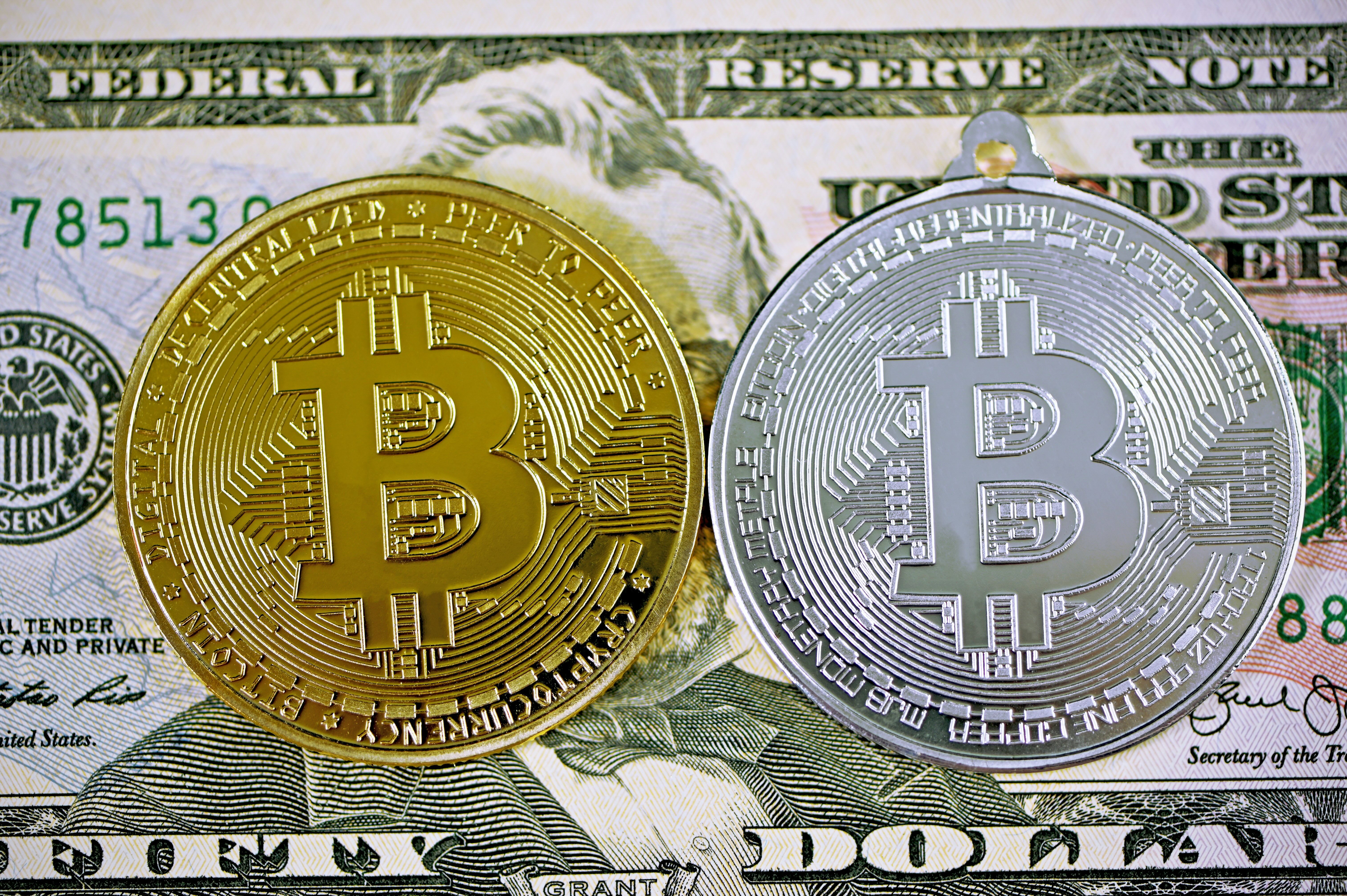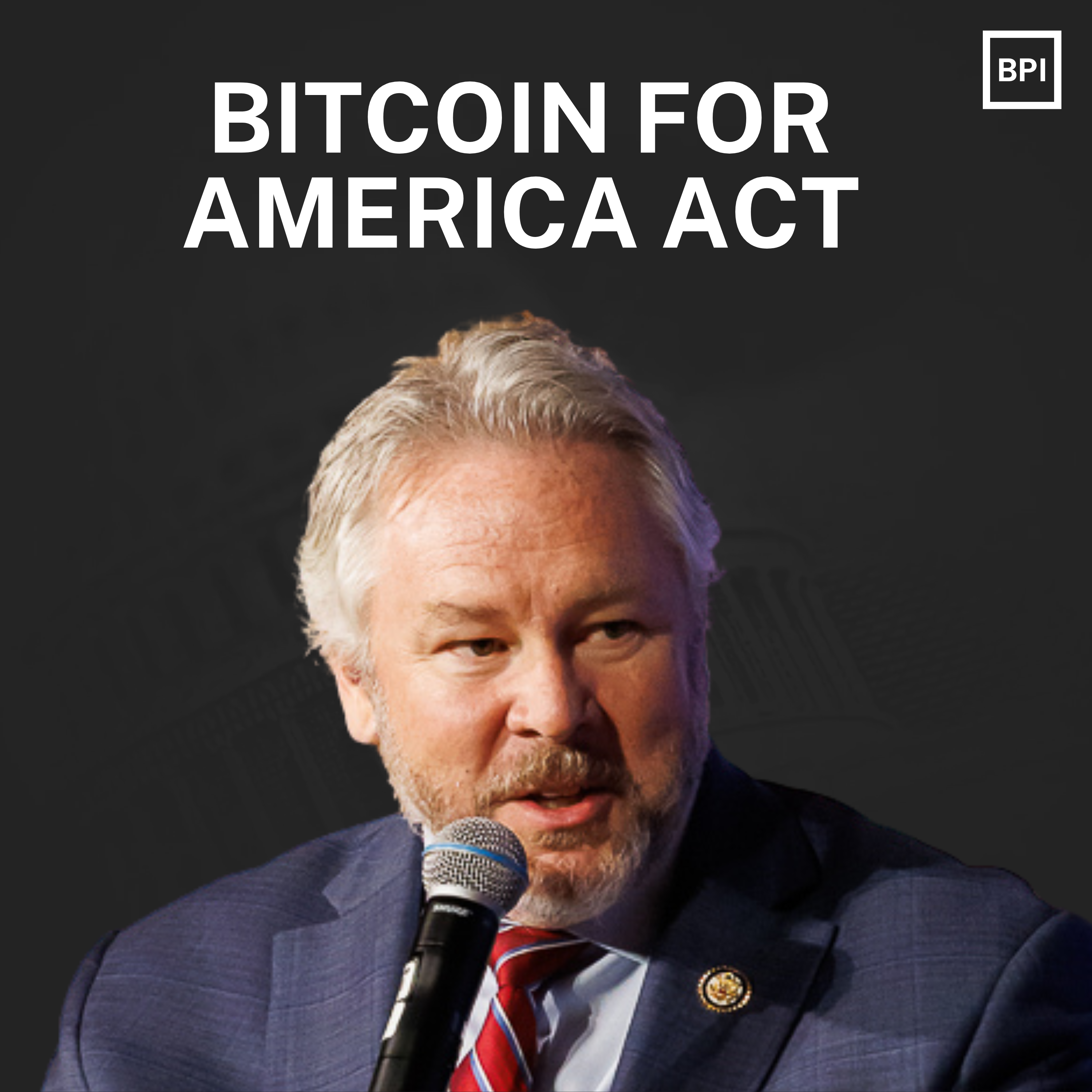The Role of Bitcoin in the Dollar-Based System
The following is a transcript of BPI Senior Fellow Josh Hendrickson's speech at the 2024 Bitcoin Policy Summit. A recording of the speech can be viewed here.

I am here to discuss the role of bitcoin in the dollar-based system. For many in my profession and for many in the policymaking world, this would be a quick talk. The dollar is the global reserve currency and the U.S. Treasury security is the global reserve asset. This conveys a number of benefits on the U.S. Given the dollar's dominance and given the benefits that dominance conveys, it might seem odd to consider any role for bitcoin. While it is true that the dollar-based system provides benefits to the U.S., it is not without its costs. In fact, under certain circumstances, the characteristics of the system can create fragility. Forward-looking policymakers need to be aware of these costs and consider ways to minimize the potential risks inherent in the system. It is here that I think bitcoin can play a role.
The benefits of the dollar-based system are well-known. The fact that the U.S. dollar is the global reserve currency implies that typical concerns about the balance of payments do not apply to the U.S. The fact that the U.S. Treasury security is the global reserve asset implies that the U.S. government can borrow much larger sums of money than other foreign governments. When the U.S. goes to war or experiences a national emergency, like the recent pandemic, the federal government can borrow large sums with little consequence on the cost of borrowing.
Nonetheless, the system is not without its costs. As the global economy grows, so does the demand for the global reserve asset. All else equal, this tends to reduce borrowing costs for the U.S., which in turn gives policymakers the incentive to run larger deficits. The net result is that the supply of the reserve asset tends to increase in conjunction with the demand. For low levels of debt this isn't a problem. However, when the debt becomes sufficiently large, the system becomes fragile. At high enough debt levels, the U.S. might have to resort to a significant devaluation of the dollar to ensure repayment. But whether or not the U.S. actually takes such actions, at a sufficiently high level of debt, expectations that the U.S. will have to monetize some its debt can be self-fulfilling. Such an outcome would be devastating to the U.S. economy.
Even independent of these potential consequences, weak incentives for fiscal prudence allow the federal government to make policy errors that either wouldn't be possible with greater fiscal constraints or that would have significant political costs. The current system therefore disincentives politicians, at least at the margin, to consider the opportunity costs of their spending.
The dollar-system has also given rise to significant financial sanctions as a tool of foreign policy. Setting aside issues related to the particular path of foreign policy, the reliance on sanctions creates a double-edged sword. Sanctions can potentially generate the outcomes U.S. policymakers desire without the loss of American lives. However, an overuse or misuse of sanctions can significantly undermine the dollar's role in the world economy.
Given the benefits, and despite its costs, policymakers have been intent on preserving the status quo. One reason for this is that many policymakers seem to imagine a counterfactual world in which the alternative to dollar dominance is the dominance of another government's currency. In that counterfactual, the U.S. would not only lose the economic benefits of the dollar-based system, but would also lose at least one significant factor of its current geopolitical advantage.
However, this need not be the counterfactual. One way in which the U.S. could maintain its geopolitical advantage while also limiting the potential costs associated with the current system would be for the U.S. to create the conditions for a modest diversification of reserves toward a neutral reserve asset, an asset not issued or controlled by a competing government or geopolitical rival. Currently, and for much of human history, that asset has been gold. But, in an increasingly digital world, that asset could be bitcoin. Like gold, bitcoin is something that countries can self-custody, thereby protecting those countries from sanctions and counterparty risk. Also, given the protocol's fixed supply schedule, Bitcoin is immune from the whims of particular policymakers and central bankers. Yet, in comparison to gold, bitcoin has the advantage of being less costly to store and to transfer.
As this description suggests, diversification toward something like bitcoin might weaken the power of sanctions. However, it would do so without shifting the advantages of the dollar-based system to any of the U.S.'s rivals or potential adversaries. At the same time, such diversification would weaken the incentives of the U.S. to accumulate excessive debt and therefore help to mitigate the fragility risk inherent in the system.
To encourage such an outcome would require that U.S. policymakers take a more "hands off" approach to Bitcoin. By doing so, this would allow the U.S. to continue to be a hub for Bitcoin-related development and innovative mining solutions. Furthermore, by taking such an approach, the U.S. could create conditions in which countries seeking to diversify their reserves would do so by turning to neutral reserve assets like bitcoin rather than alternative sovereign currencies. This would not only minimize geopolitical risks associated with a diversification away from the dollar, but would make the U.S. economy a primary beneficiary of wider global adoption of bitcoin.
I want to be clear in what I am saying. The U.S. dollar continues to be strong. In fact, global uncertainty continues to reinforce rather than undermine the strength of the dollar. Nonetheless, the rapidly rising level of U.S. government debt is a significant concern. If the debt gets large enough, the positive feedback loops of which the U.S. has been the beneficiary could turn to negative feedback loops. The increasing use of sanctions could also undermine the dollar's status. Even if the probability of these outcomes is low, forward-looking policymakers need to be thinking about, and looking for ways to avoid, these outcomes.
For those forward-looking policymakers concerned about these possibilities, it is my view that bitcoin could serve an important role. Bitcoin could be the safety valve. In the event that the dollar's status is eroded by reckless fiscal policy or by overly aggressive U.S. sanctions, it would be in the U.S.'s interest to have countries substitute to a neutral asset like bitcoin. A gradual diversification could minimize the adverse economic consequences of an erosion of the dollar's status without necessarily disrupting the current geopolitical power structure. At the same time, such a shift would lead to a modest tightening of the fiscal constraints on the federal government thereby making policymakers more acutely aware of the opportunity costs of their actions.
It is important to reflect on history. Since the emergence of the international gold standard in the 1870s, the international monetary system has gone through considerable changes. In each case, these changes were driven by major international events. The beneficiary of those events has often been the U.S. At times, the U.S. was the beneficiary of favorable circumstances. However, more often the benefits that accrued to the U.S. from changes in the international monetary system were the result of its forward-looking policymakers. Depending on how one dates things, the current international monetary arrangements have been in place for approximately 50 years — longer than the international gold standard, the chaos of the interwar period, or the Bretton Woods system. With that history as a backdrop, it is naive to think that the status quo is permanent. U.S. policymakers need to be prepared to shape the outcome of whatever comes next. As I've outlined here, what comes next is likely to involve a role for a neutral asset like bitcoin. Thus, policymakers would be wise not to develop an adversarial stance toward their potential lifeline.



.svg)



.png)
%20copy%205.png)
